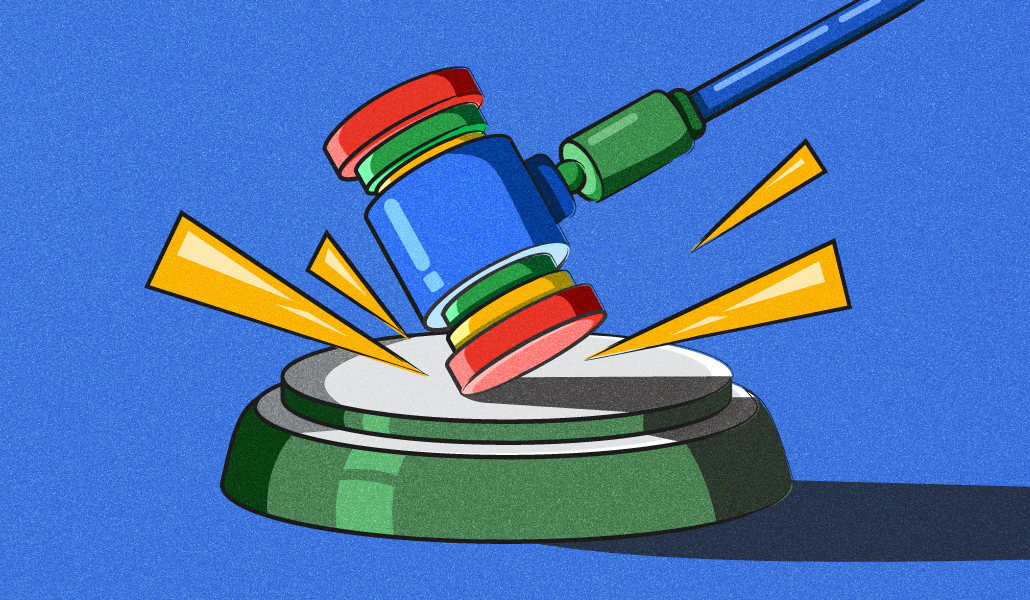Next week (Sept. 9) marks the beginning of one of the most pivotal antitrust trials in U.S. history, a case that could send shockwaves through the ad industry. Central to the trial is an investigation into whether Google’s business practices and corporate culture have been skirting the rules of fair competition.
First, some background
In 2023, the Department of Justice, joined by several state attorneys general, filed a civil antitrust suit against Google, accusing the company of monopolizing the digital ad market. If this sounds familiar, it’s because the DOJ has also filed a separate antitrust suit against Google, targeting its dominance in the search business.
Got it. So what has the DOJ actually accused Google of doing?
At this point, it might be easier to ask what they haven’t accused them of — the list of accusations is that long. The key allegations include:
- Monopolistic practices in the ad tech market
- Anti-competitive acquisitions
- Manipulating ad auctions
- Self-preferencing practices
- Exclusive dealing arrangements
- Restrictions on data portability
- Disadvantaging competitors with data policies
- Impact on consumers and market innovation
So, what do all those allegations really boil down to?
The U.S. Department of Justice is taking Google to court for allegedly playing dirty in the digital ad game. The big accusations? Google has been buying out rivals, rigging ad auctions in its favor, giving its own products the upper hand, and locking down the market with restrictive contracts. On top of that, Google is accused of keeping competitors in the dark by blocking access to crucial data and making it a nightmare for businesses to switch to other services. All these moves, the DOJ argues, choke off competition, drive up costs for advertisers, cut into publishers’ revenue and shrink choices for consumers. To level the playing field, the DOJ wants to break up parts of Google’s ad empire.
Wait, the DOJ wants to do what?
You heard that right. The DOJ and several states are pushing for the court to break up parts of Google’s ad tech empire, like its ad server and ad exchange, to curb its market dominance. They’re also looking to put an end to what they believe are Google’s sneaky tactics, enforce fairer ad auctions, make it easier for businesses to jump ship to other services, and keep a close eye on things to prevent any future foul play. The goal? To bring back real competition in the digital ad space and protect both consumers and businesses.
Ok, the DOJ really believes Google has been up to no good?
Absolutely, and it might be onto something. The piles of court-filed declarations, emails, depositions and other documents unsealed before the trial paint a rather unflattering picture of Google and its business practices. It seems there’s plenty of evidence suggesting Google hasn’t been playing fair.
Out of everything, Header Bidding is likely to be a flashpoint in this trial.
Header Bidding — a technique that allows publishers to sell ad space to multiple programmatic marketplaces simultaneously, boosting competition and potentially sidestepping Google’s own marketplace, which was so powerful it often stifled publishers’ ability to maximize their earnings.
Naturally, Google didn’t just sit back and let that happen.
According to the DOJ, Google fought back hard: It allegedly struck a secret deal with Facebook, codenamed “Jedi Blue,” to limit support for Header Bidding, manipulated ad auction rules to disadvantage it and pushed its own alternative, Open Bidding.
And that’s not all. Google is also accused of spreading misinformation about the effectiveness of Header Bidding to deter its adoption, all to maintain its stranglehold on the market and edge out competitors.
And there are other examples of this sort of thing happening?
Oh, plenty more. Here are just a few highlights:
Google’s systems had first dibs on the most valuable cookies and highest-paying impressions, giving it a clear advantage over its competitors, per the DOJ.
Google allegedly kept its pricing deliberately opaque, allowing it to charge higher fees (around 20%) than its rivals, with no clear justification.
There’s evidence suggesting Google gave its own ad tech products an unfair leg up, giving them preferential treatment over competitors’ offerings.
Translation: Google used its vast troves of data on how ad inventory was bought and sold to ensure its own products were the go-to facilitators for those transactions, all while securing a hefty slice of the ad dollars being spent.
…This trial is going to have big repercussions irrespective of the outcome?
It sure will. But instead of trying to predict the exact outcome, it’s more useful to look at the broader implications — at least for now.
Beyond the potential breakup of Google’s ad tech empire, this trial could trigger a major shake-up in the digital advertising landscape, opening the door for more competition and altering the way ads are bought and sold. A ruling against Google could set a powerful precedent for future antitrust actions against big tech, rippling through the entire advertising ecosystem. It might force Google to rethink its business model, potentially reducing its stranglehold on the ad tech market. The result could also change the way advertisers reach their audiences and how publishers generate revenue, sparking innovation and boosting competition across the industry.

